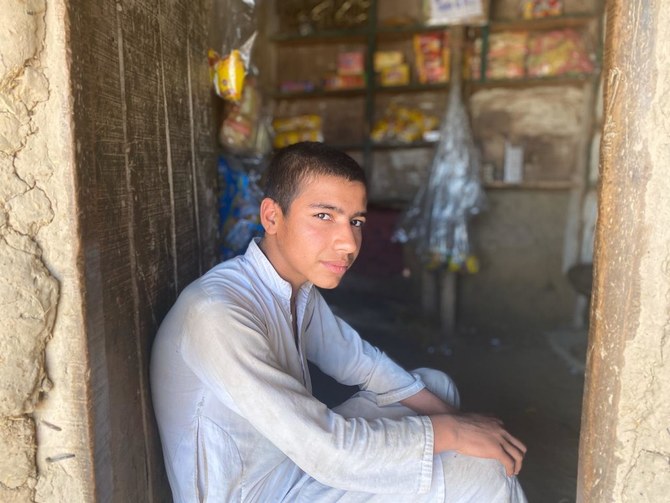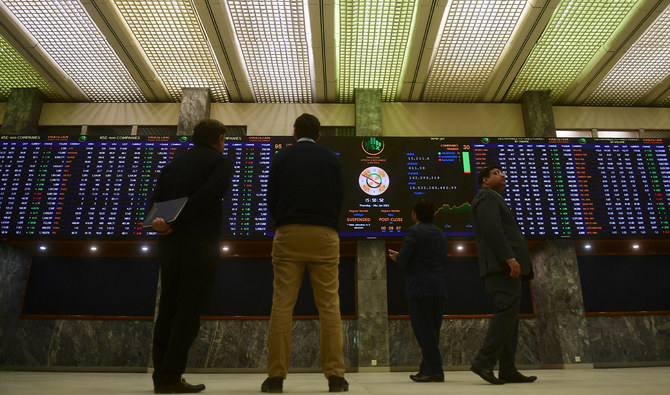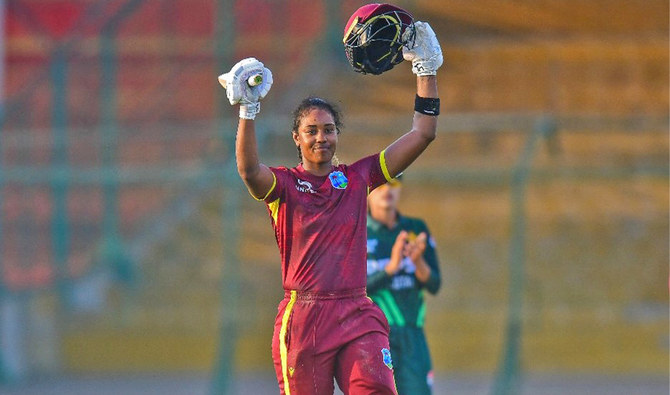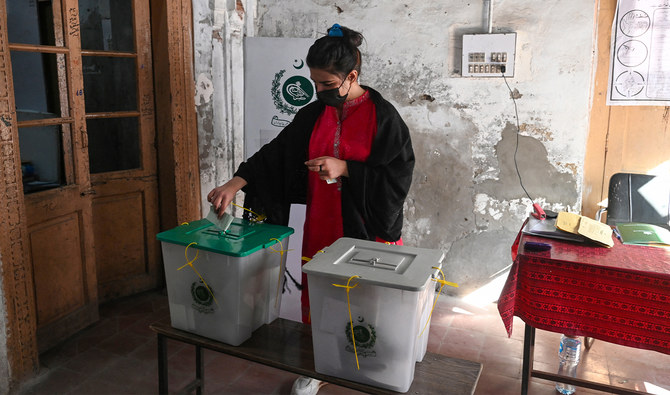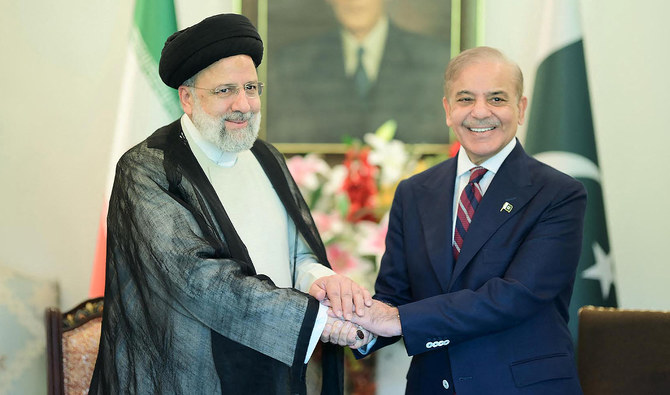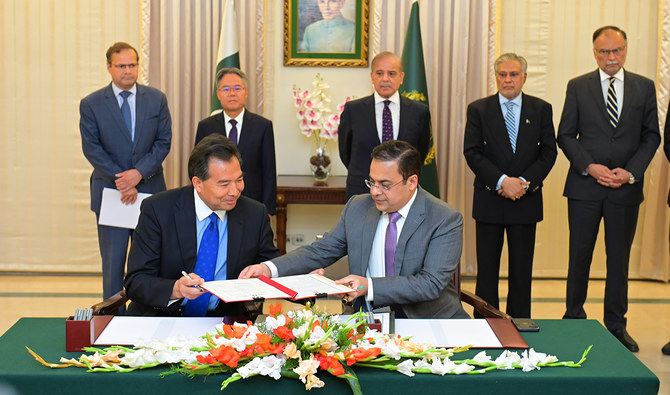KARACHI: Afghan refugees in Pakistan say they fear hunger will take its toll on them much faster than the coronavirus, amid fears the deadly disease could ravage tens of millions of the world’s most vulnerable people living in squalid camp conditions.
Efforts to confront the pandemic in Pakistan, including partial citywide lockdowns, have largely paralyzed economic activity and are disproportionately affecting those who live hand to mouth, like the more than 1.4 million Afghan refugees who fled violent conflict in their country and sought asylum in Pakistan-- some of them, since the last four decades.
“The coronavirus may or may not kill us, but hunger will kill us for sure,” said Zahir Pashtun, a 33-year-old who lives with his four children at the Sarorai refugee camp in Balochistan.
“The refugees earn during the day and eat in the evening. They have no savings, so when there is no work, there is no food,” he said.
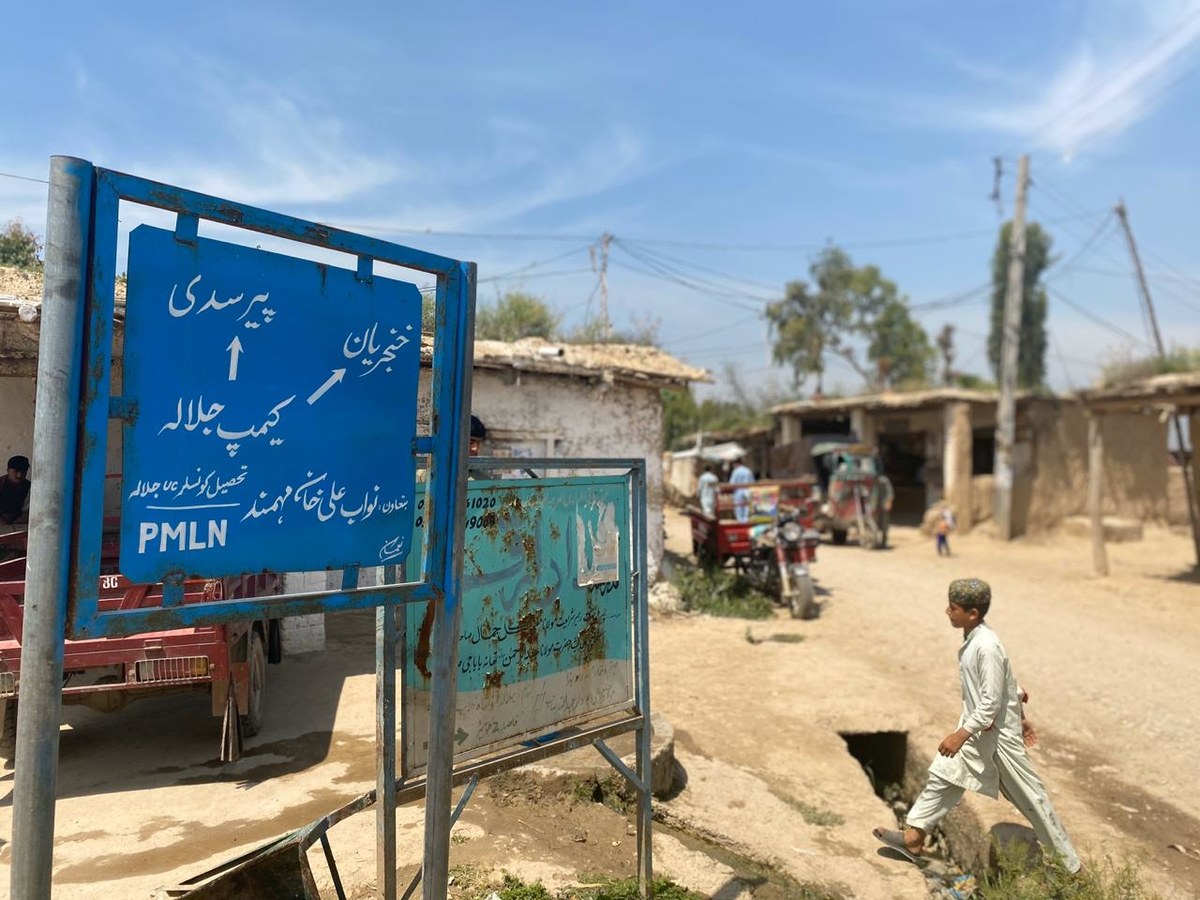
A child walks past a signboard in the Jalala refugee camp in Mardan district, Khyber Pakhtunkhwa, on April 9, 2020. (AN Photo)
The refugees live in 54 camps across the country, mostly in Khyber Pakhtunkhwa and Balochistan provinces which border Afghanistan. Refugee settlements are also located in large urban centers like Karachi and Islamabad.
In 2018, Prime Minister Imran Khan was lauded by human rights activists and civil libertarians for vowing to grant citizenship to Afghan refugees born in Pakistan, and those who had been living in the country for several decades. The move would have substantially increased the quality of life and work for the millions of Afghans who call Pakistan home. But in the almost two years since, that promise remains a pipe dream.
States and Frontier Regions (SAFRON) Minister Shehryar Khan Afridi told Arab News that according to his estimates, the actual number of Afghan refugees in the country is closer to 2.8 million. About 80 percent of those who work are daily wage earners.
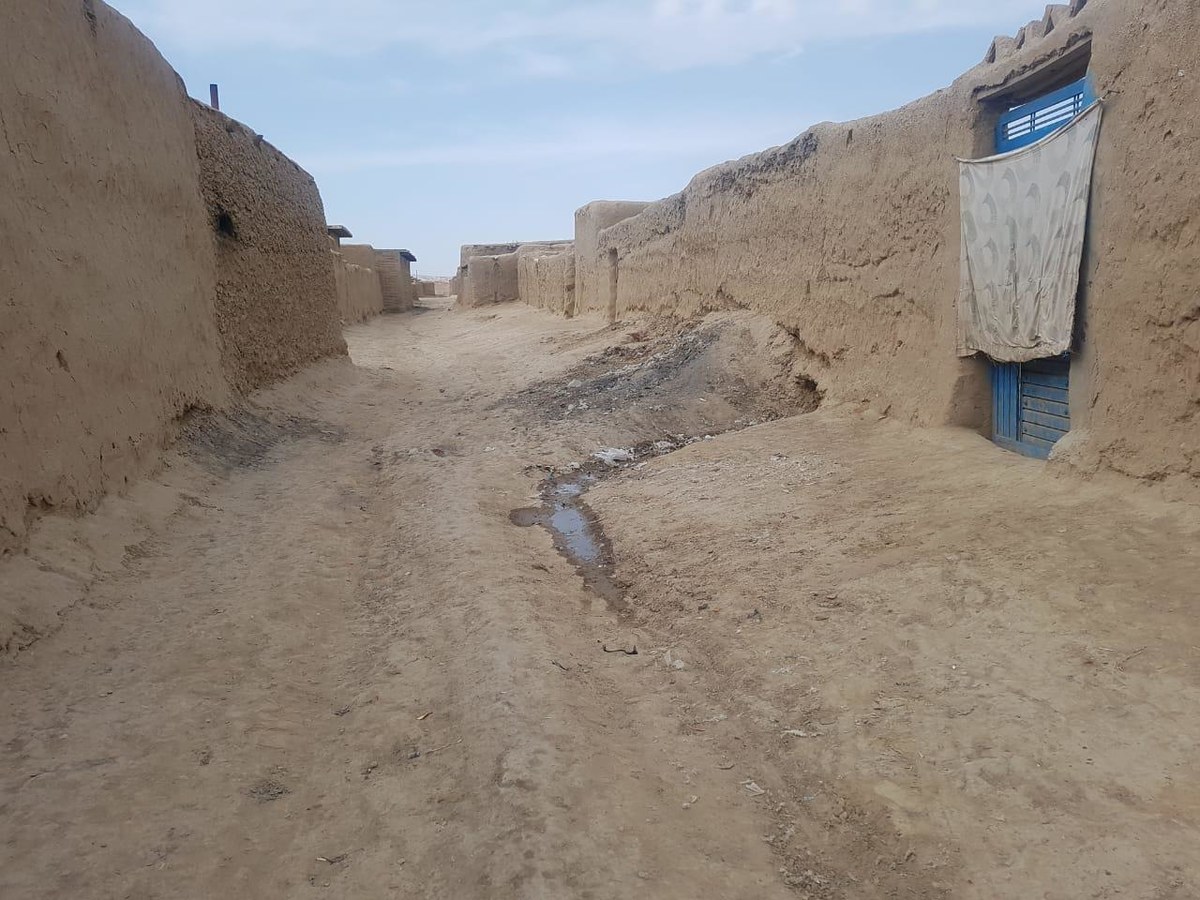
The streets of the Sarorai refugee camp in Balochistan are empty on April 9, 2020. (AN Photo)
He said the prime minister had agreed to an economic relief proposal to help the refugees survive and had directed officials to work out a relief package similar to the one for poor Pakistanis affected by ongoing lockdowns.
He said he had submitted a written request to the UNHCR representative in Pakistan, requesting that the agency’s funding for refugees be diverted to emergency food assistance for them.
But the food is still desperately awaited.
“We are still waiting for any assistance. I’m getting calls from widows and orphans asking: when will the food arrive?” Hajji Badam Gul, head of refugees in Jalala village, Khyber Pakhtunkhwa, told Arab News.
He said the UNHCR had promised help, but it had not yet begun arriving.
No relief has reached Sindh either, according to Hajji Abdullah, head of the refugees in the southern province.
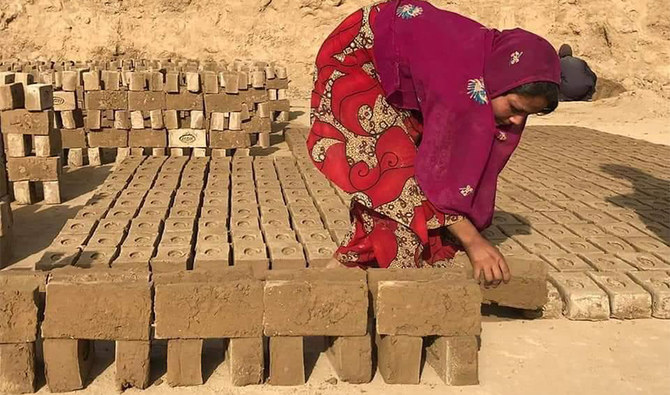
In this undated photo, a little girl hailing from the Sarorai refugee camp is working at a brick factory in Pishin, Balochistan. (Photo courtesy: Zahir Pashtun)
“We have written letters to the UNHCR as well as private charities, but no one has reached out to us yet,” he said.
According to UNHCR Pakistan spokesman Qaiser Khan Afridi, the agency is working closely with the Commissionerate of Afghan Refugees (CAR) to assist in the overall coronavirus response.
Afridi said the UNHCR had provided 10 fully equipped ambulances and 28 large housing units to provincial health departments and the disaster management authorities in Balochistan, Khyber Pakhtunkhwa and Punjab.
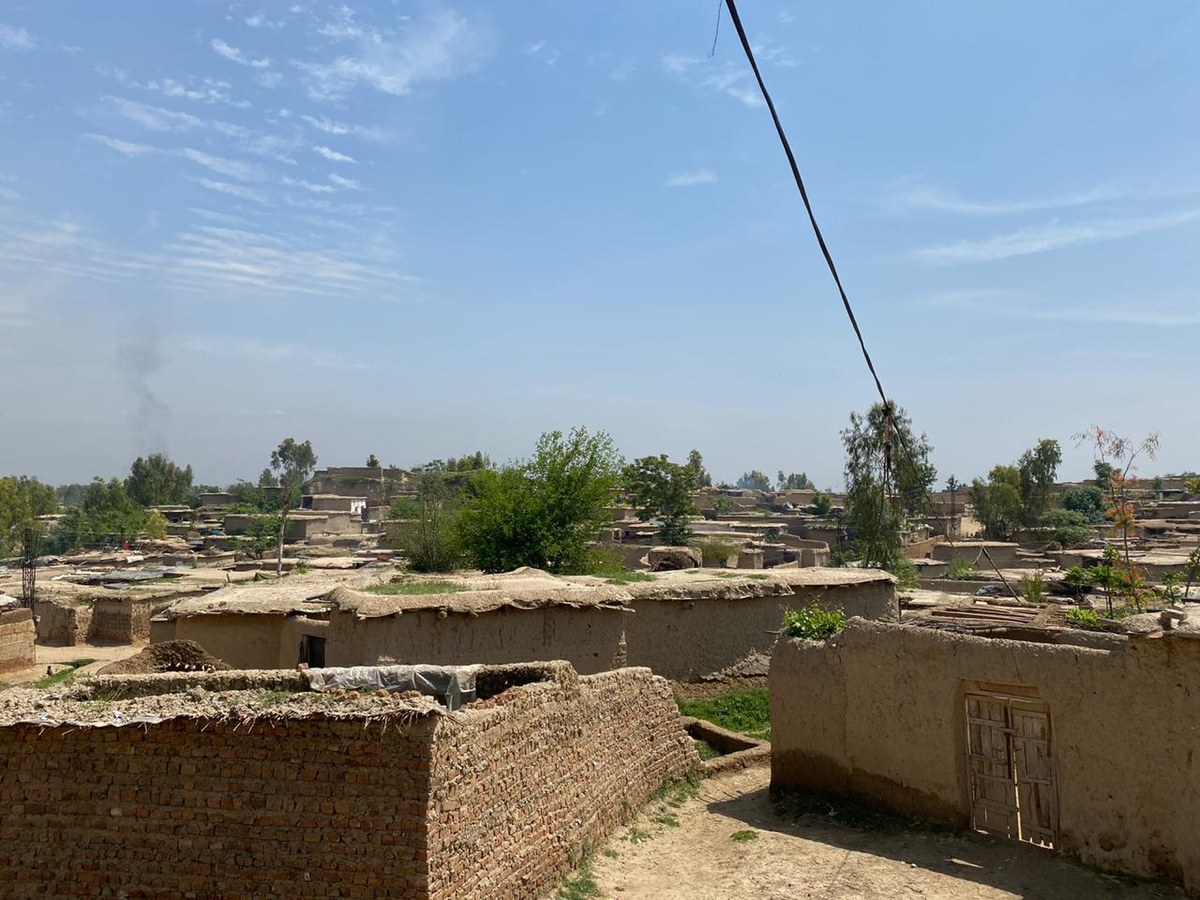
Jalala refugee village in Khyber Pakhtunkhwa looks deserted on April 9, 2020, amid a nationwide lockdown. (AN Photo)
“UNHCR has also provided large rubb halls to support isolation facilities being established by the Balochistan government,” he told Arab News, adding that awareness campaigns and prevention measures had been organized by UNHCR for the refugees and host communities since the beginning of the outbreak, and that works on improving sanitation in their settlements were underway.
But for people like Hanifa Gulbadin, an Afghan refugee and head of her family in the southern megacity of Karachi, awareness and cleanliness campaigns are not immediate solutions to the crisis in her home.
“My son, who collects trash and earns between Rs200 to Rs500, has not gone out for the last two weeks,” she said, and added that food had all but run out on her table.
Across the length of the country in Mardan’s Jalala refugee camp, young shopkeeper Tariq Jan said there have been no customers for days.
“People have stopped buying, as they don’t have any money,” he said, staring wistfully at the wreaths of colorful toffees and sweets hanging along his storefront to entice younger customers.
“Even the children have stopped coming.”



